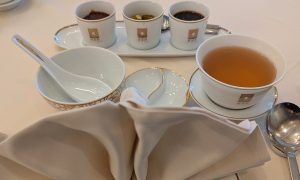It’s not just santa who enjoys a good list. Something about list, whether ranking things or just spelling them out in bite-size morsels, appeals to nearly all of us. Editor Chad Merchant takes a look at how his adopted home city is appearing on more lists than ever before.
Perhaps as recently as a single generation ago, Kuala Lumpur wasn’t found on many global lists. Still little more than a really big kampung, the city saw its first major emergence during the 1990s. The PETRONAS towers, the North-South Highway, the vast expansion of KL’s road system, the naming of Langkawi as a duty-free island, the SMART tunnel, and so much more… the ’90s were a heady time for this Southeast Asian nation which, up until then, hadn’t made much of a global splash. While much of the world was noisily crowing over the “Asian Tigers,” KL wasn’t even really acknowledged as a cub.
What a difference 20 years has made.
Today, expats and residents alike are living in a country that is making “best of” lists seemingly at every turn – shopping, retiring, medical tourism, visitor arrivals – just name the category: Malaysia is increasingly being discovered.
So, dear readers, for those of you who find lists and rankings to be something of an addiction, I present to you here just a few of the latest lists and rankings for Malaysia and its cities.
Two of the indicators we list in our ongoing ASEAN series are the GDP PPP (purchase power parity) and HumanDevelopment Index, which give a snapshot view of a country’s economic health and its quality of life, respectively. In both categories, Malaysia placed third in the region, rather far behind Singapore and Brunei, but significantly above the next-highest country, Thailand.
To the great dismay of Singaporeans, Kuala Lumpur placed second in Asia for shopping according to Global Blue, and in a separate study by CNN, garnered fourth place worldwide, just behind the global titans of New York, London, and Tokyo. Residents of the Lion City, for whom many shopping is their primary pastime, seemed genuinely distraught that KL had bested them, judging by comments left on the respective studies’ websites.
KL is also noted as an “alpha-ranked global city,” placing it on equal footing with regard to its regional and worldwide importance with such cities as Los Angeles, Beijing, Amsterdam, Seoul, Jakarta, and Frankfurt. There are two higher categories, Alpha+ (in Asia, Singapore, Hong Kong, Shanghai, and Tokyo are examples) and Alpha++ (only two cities fill this category: New York and London).
Additionally, KL is further noted as a “primate city,” which – local driving habits notwithstanding – does not imply a city filled with monkeys, but rather a city of disproportionate importance to the culture and economy of its country, a city at least twice as large as the next-largest city, and one from which the rest of the country generally takes its political, social, and cultural cues. Paris and London are well-known examples of primate cities; my home country, the US, does not have one. As Malaysia’s primate city, Greater KL actually contributes about a third of Malaysia’s entire GDP and is the political and cultural centre of the nation.
Penang was recently named by Kiplinger’s as the fourth-best place in the world in which to retire. This list is aimed primarily at Americans, so for an Asian city to make the list (and Penang was the only one) is eveidence of the great appeal of this popular Malaysian island. Another publication, International Living magazine, named Malaysia in its top 10 worldwide medical tourism destinations.
On point of tourism, Malaysia is ranked ninth in the world overall in tourist arrivals, with nearly 25 million international visitors in 2011. As the impressive Iskandar Malaysia development continues to flourish in Johor, look for this ranking to improve even further.
Our flagship airport, KLIA, has regrettably slipped from the world’s top 10 overall (as named by Skytrax), but recently still came in at #14 and is rated as a “four-star airport.” Singapore’s Changi Airport was ranked #1. As an aside, it should be noted that KLIA ranked #3 in the world in its specific category (30-40M passengers per year). Surprisingly, the nearby LCCT, which consistently draws the ire of expats and locals alike (though it has definitely improved in the last few years), was ranked as the fifth-best budget terminal in the world. One can only assume that if the criteria are lax enough to see the LCCT achieve this ranking, the shiny new KLIA2 will vault directly to the top of the list when it opens later in 2013.
It’s surprising to me that such a relatively small country as Malaysia could make such an international impact, but Malaysia is the land of surprises in many ways. Perhaps something not so surprising to those of us who have been here for a while: according to HSBC Expat Explorer, Malaysia is ranked as the fifth-best country in which to live for an expat experience.
———————————————————————————————————
Source: The Expat May 2013
Read more:
- Expats Can Use Everyday Events to Act as ‘Ambassadors’ for Their Home Countries
- She’s Not Prying! She’s Just Interested in You and Wants to Hear Your Story!
- Saying Goodbye to Old Friends and Welcoming New Ones is a Normal Part of Expat Life
What are your thoughts on this article? Let us know by commenting below.No registration needed.
"ExpatGo welcomes and encourages comments, input, and divergent opinions. However, we kindly request that you use suitable language in your comments, and refrain from any sort of personal attack, hate speech, or disparaging rhetoric. Comments not in line with this are subject to removal from the site. "


















